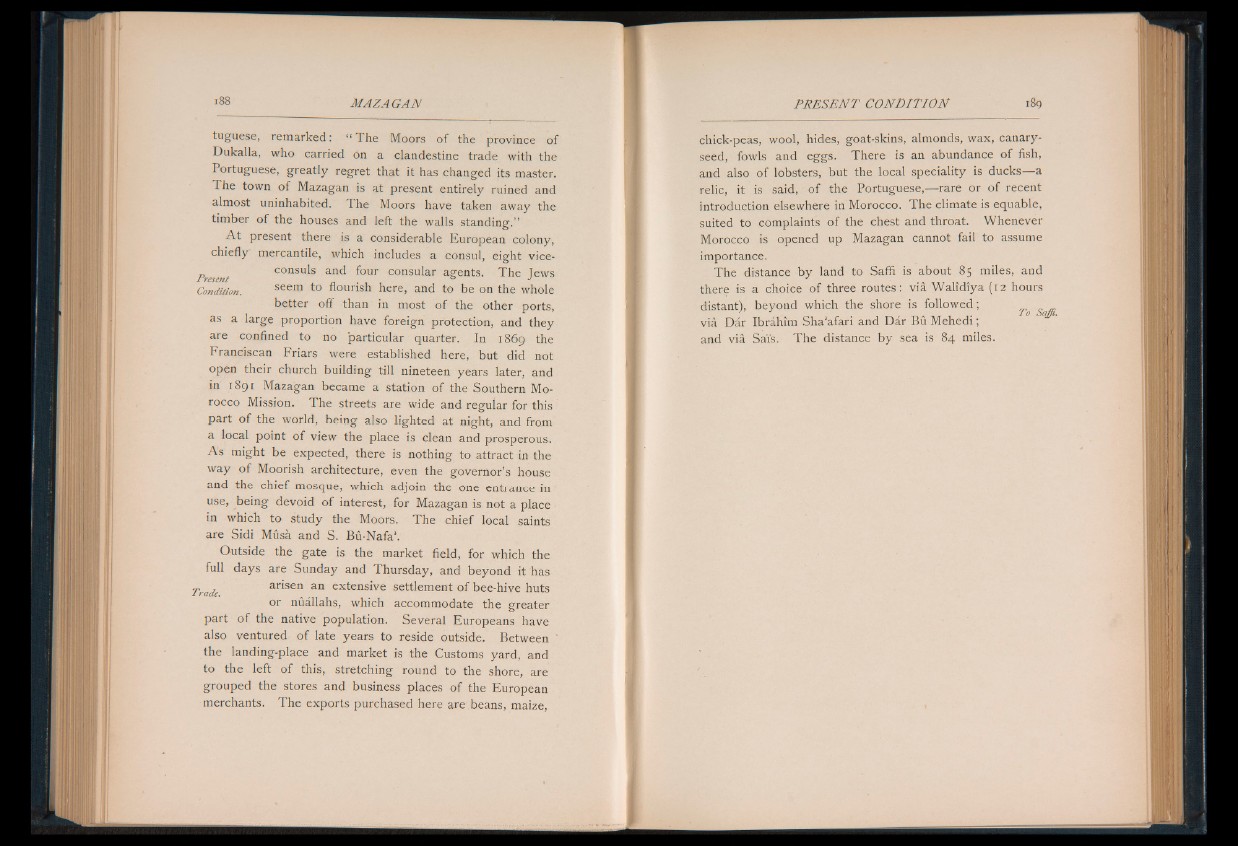
tuguese, remarked: “ The Moors of the province of
Dukalla, who carried on a clandestine trade with the
Portuguese, greatly regret that it has changed its master.
The town of Mazagan is at present entirely ruined and
almost uninhabited. The Moors have taken away the
timber of the houses and left the walls standing.”
A t present there is a considerable European colony,
chiefly mercantile, which includes a consul,7 eioght vice-
Present consuls and four consular agents. The Jews
Condition. seem to flourish here, and to be on the whole
better off than in most of the other ports,
as a large proportion have foreign protection, and they
are confined to no particular quarter. In 1869 the
Franciscan Friars were established here, but did not
open their church building till nineteen years later, and
in 189 r Mazagan became a station of the Southern Morocco
Mission. The streets are wide and regular for this
part o f the world, being also lighted at night, and from
a local point of view the place is clean and prosperous.
A s might be expected, there is nothing to attract in the
way o f Moorish architecture, even the governor’s house
and the chief mosque, which adjoin the one entrance in
use, being devoid of interest, for Mazagan is not a place
in which to study the Moors. The chief local saints
are Sidi Musa and S. Bu-Nafa’.
Outside the gate is the market field, for which the
full days are Sunday and Thursday, and beyond it has
Trad arisen an extensive settlement of bee-hive huts
or nuallahs, which accommodate the greater
part o f the native population. Several Europeans have
also ventured of late years to reside outside. Between '
the landing-place and market is the Customs yard, and
to the left of this, stretching round to the shore, are
grouped the stores and business places of the European
merchants. The exports purchased here are beans, maize,
chick-peas, wool, hides, goat-skins, almonds, wax, canary-
seed, fowls and eggs. There is an abundance of fish,
and also of lobsters, but the local speciality is ducks— a
relic, it is said, of the Portuguese,— rare or of recent
introduction elsewhere in Morocco. The climate is equable,
suited to complaints o f the chest and throat. Whenever
Morocco is opened up Mazagan cannot fail to assume
importance.
The distance by land to Safifi is about 85 miles, and
there is a choice of three routes: viâ Walîdîya (12 hours
distant), beyond which thé shore is followed ; To Sl
viâ Dâr Ibrahim Sha’afari and Dâr Bû Mehedi ;
and viâ Sais. The distance by sea is 84 miles.